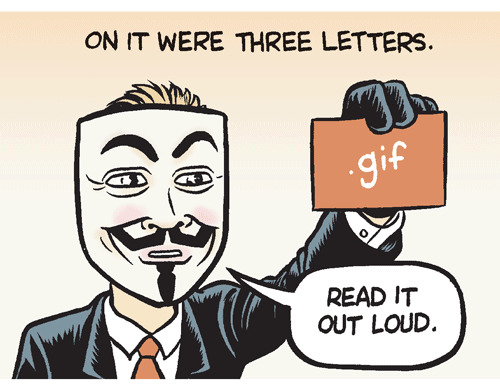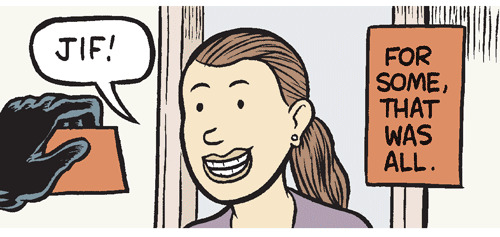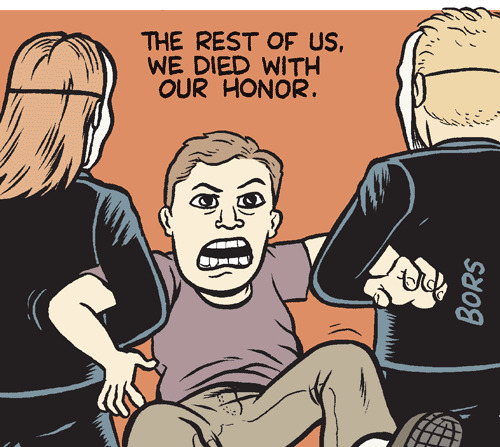Text
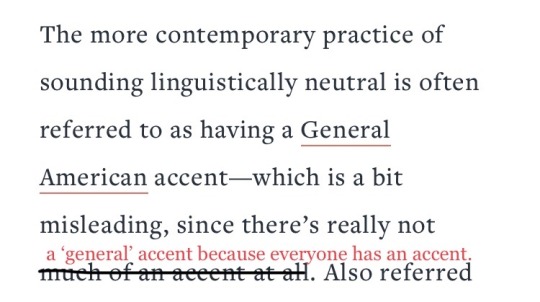
Oof you were so close to commenting on standardized varieties but then in the last line you veered in the opposite direction and showed a misunderstanding of the most basic concept of linguistics and now I don’t trust anything in this article
1K notes
·
View notes
Text
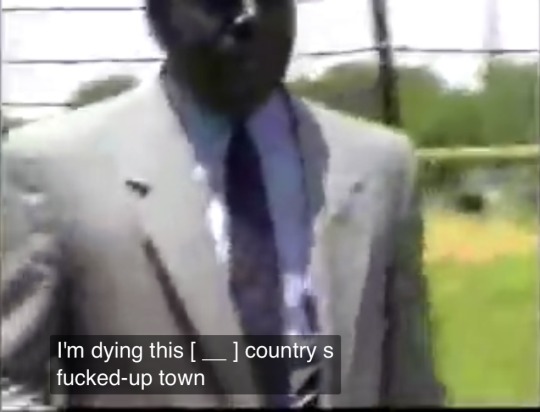
also tell me why youtube’s automatic captions censors ‘fuck’ but not ‘fucked-up’
here have a funny example of newscaster code switching
129 notes
·
View notes
Text
here have a funny example of newscaster code switching
129 notes
·
View notes
Video
youtube
Psycholinguistics - Crash Course Linguistics #11
We couldn’t have language without the brain, but our brains are a bit harder to study than other parts of the body that we use to make languages like our mouths and hands. In this episode of Crash Course Linguistics, we’ll learn about the field that studies where and how language happens in the brain, called psycholinguistics. We’ll cover old and new research in the field, classic studies, and the methods psycholinguists use to uncover the connections between language and the brain.
For more psycholinguistics, check out this week’s issue of Mutual Intelligibility.
117 notes
·
View notes
Video
youtube
Crash Course Linguistics #9 - Vowels
In English, we have 5 (well, sometimes 6) vowel letters, but way more vowel sounds. That’s where the IPA can help us! In this episode of Crash Course Linguistics, we’ll learn about vowels, those sounds you can sing with your mouth open, and how we can represent them clearly using the IPA.
For more with vowels, including practice exercises, check out this week’s issue of Mutual Intelligibility.
59 notes
·
View notes
Text
Worldbuilders naming towns: I named this town Elygwe’meth which means “Where the Dearly Beloved King died next to his Lover” in the language I invented and also a combination of the Old English word for diamonds and the Maori word for apples since that’s their main exports
People in real life naming towns: I named this town Big Falls cause big fall there
97K notes
·
View notes
Text
Please watch this.
64K notes
·
View notes
Text

ldmksbdjshjshshdgshhs
30K notes
·
View notes
Photo
Since I’m newly Back On Tumblr, I’ll once again reblog this post that has haunted me for three years. I really love this addition because it distinguishes between unintentional biases that come from the people who create the technology vs. the huge collection of information that teaches the tech. Thanks for breaking down the logistics of Google Translate’s abilities!!


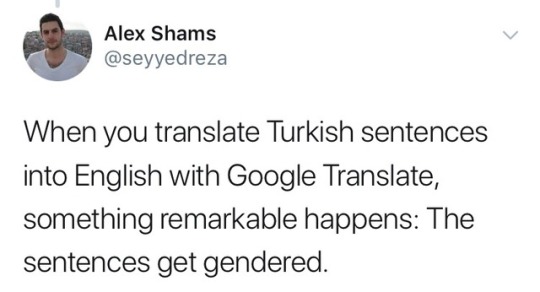

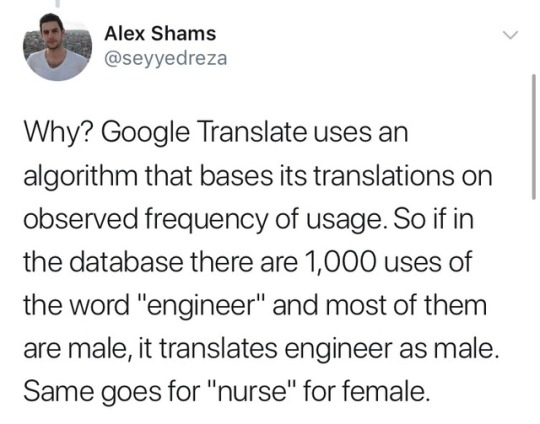


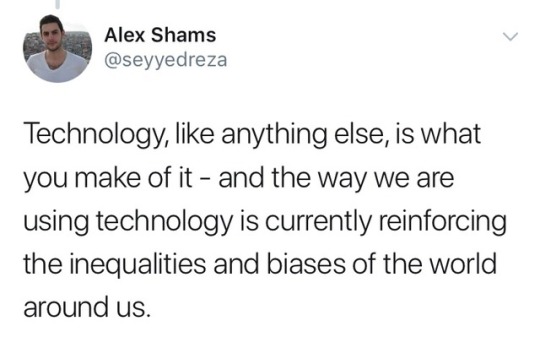


Link to the original tweet
#this post is my personal hell and hades himself has dragged me back but at least i get to chill with persephone#translation#google translate#That Post
107K notes
·
View notes
Text
Hey everyone!! It’s been a while. I came back for the first time in over a year to search for something in my tags and realized how much I miss this dumb nerdy blog. So I’m back for now? I forget my tagging system, I don’t know about any of tumblr’s recent updates or anything, and I’m pretty sure I won’t be getting a job relating to linguistics after I graduate in April, but I still love linguistics and languages so why not come back and have fun
#steph talks#i forget how i tagged anything oops#i feel like i'm an entirely different person since i was the last time i logged on
19 notes
·
View notes
Link
An excellent article in Slate by linguist Lisa Davidson addressing the important question on how Baby Yoda might talk. Excerpt:
When we hear characters in the Star Wars universe speaking English, they’re really speaking Galactic Basic. There are various accents and dialects, but the most famous variant may be Yoda’s, which changes the word order of Galactic Basic Standard. In terms of English grammar (since that’s how we hear Basic anyway), this means that while most characters speak with subject-verb-object order (“You must have patience”), Yoda often, but not exclusively, produces object-subject-verb order (“Patience you must have!”). This is a simplification of Yoda’s syntax, but for the sake of simplicity we’ll use that label to describe his word order. […]
As for Baby Yoda, at least in the current moment, he’s living with speakers of Galactic Basic Standard who use subject-verb-object order. We do not know, however, what he experienced in the past. Perhaps he lived with other members of Yoda’s species for a part of his life, which might mean that he received language input from adult speakers of this species. Could that be enough to justify speaking like Yoda when he finally talks? Considering that he doesn’t speak now (and barring the “he just doesn’t want to talk out loud yet” option), even if he lived with other Yoda-style speakers in the past, it’s still doubtful that he would have typical Yoda syntax. Between whatever language was spoken around him when he lived with the Nikto mercenaries and the Galactic Basic spoken by the Mandalorian, Dr. Pershing, and the Sorgan villagers, his exposure to Yoda’s variant of Basic would become less salient over time. If Baby Yoda is like a human, his first words should reflect the language environment he’s in once he begins to talk. This would track with cases of young adopted children, from preschool through early elementary school, who rapidly lose access to the first language they were exposed to, even within three to six months of being adopted.
On the other hand, since so little is known about Yoda’s species, there’s a possibility that the members of this species actually speak a different language. Because Yoda traveled throughout the galaxy so much, perhaps he learned Galactic Basic as an adult. This might mean that Yoda’s object-subject-verb word order is a result of what linguists call “transfer”: As Queen Mary University of London professor David Adger pointed out in 2017, Yoda could be applying the word order from a hypothetical native language “Yodish” to his command of Basic. If this were the situation, then it would be even less likely that Baby Yoda would have been exposed to the object-subject-verb variant of Basic, presumably because the first adults he lived with would have been speaking Yodish around him. The end result of this situation would be the same as above: If Baby Yoda did not yet reach the critical period for language before he left his Yodish home, then his access to Yodish would quickly decline now that he’s surrounded by Basic speakers.
A last option to consider is that the Yoda species is in some way hard-wired for object-subject-verb word order. This possibility would mean that Yoda is much less humanlike than we have been considering. One of the goals of the field of linguistics is to understand all of the variations found in human language, from the possible sounds of language, to how words are built, to possible word orders and more. Languages can differ greatly from one another on these dimensions, but one of the hallmarks of human language acquisition is that no one is hard-wired for any specific language. Instead we acquire whatever language or languages are spoken by the people around us and with whom we want to communicate. We could envision a scenario in which Yoda and others of his species are somehow neurologically committed to object-subject-verb word order, but it would be curious and rather arbitrary that Yoda then learned to speak the same Basic as all of the other speakers in the galaxy in every way except for word order.
Read the whole thing.
#MY GOD!!!!!#baby yoda#yoda#star wars#movies#media#language acquisition#child language acquisition#first language acquisition#second language acquisition#yodish#galactic basic#galactic basic standard#syntax#word order
541 notes
·
View notes
Photo
Thanks for adding this!! I didn’t know about this (because the only language I’ve been google translating lately is Arabic, which has several genders)










Link to the original tweet
107K notes
·
View notes
Text
We’re doing Postmodernism is Sociology, and the teacher was talking about ‘language games'— language that is so specialised that unless you’re part of a specific group it’s totally incomprehensible.
And, as an example, he gave us this monstrosity:

And, what’s even worse— I fucking UNDERSTOOD IT. I had to EXPLAIN this to my fucking sociology class.
This is why we should never have let the millenials become teachers.
198K notes
·
View notes
Text
A very long list of pop linguistics books and lingfic
Looking for pop linguistics books or linguistics-related fiction to read, find in a library, ask for as a gift, or give to a language nerd in your life? Here’s an extensive list of books you might be interested in.
New nonfiction books!
Because Internet by Gretchen McCulloch (my book about internet language, 2019)
Language Unlimited by David Adger, 2019
Don’t Believe A Word by David Shariatmadari, 2019
Babel: Around the World in 20 Languages by Gaston Dorren, 2018
The Prodigal Tongue by Lynne Murphy (my livetweet), 2018
Recent general books
John McWhorter has many pop linguistics books, including notably: The Language Hoax, The Power of Babel, Our Magnificent Bastard Tongue, What Language Is, Word on the Street
David Crystal also has many pop linguistics books, including more recently: the history of English spelling, A Little Book of Language (note that Crystal also writes “interesting facts about words” books, so check the description if this is a relevant factor for you)
The Sense of Style by Steven Pinker (the one style book on this entire list, because he approaches it from a genuinely linguistic perspective: see my review here).
The Riddle of the Labyrinth by Margalit Fox (about cracking Linear B)
You Are What You Speak by RL Greene
The Unfolding of Language by Guy Deutscher (about the history of language)
How Babies Talk by Roberta Michnick Golinkoff and Kathy Hirsh-Pasek
In The Land of Invented Languages by Arika Okrent (my review)
The Art of Language Invention by David J. Peterson (my livetweet)
Word by Word by Kory Stamper, who also has a second book coming out! (my livetweet)
You’re The Only One I Can Tell by Deborah Tannen
Older general books
(Most of these I read when I was getting into linguistics so I can vouch for them being interesting enough when I read them such that they’ve stuck in my mind many years later, but I’m not sure how they’d stack up on re-reading. Just so you know.)
Steven Pinker’s pop linguistics books have gotten older but are still classics: The Language Instinct, Words and Rules, The Stuff of Thought
Older David Crystal books: How Language Works, The Stories of English
Verbatim (a collection of essays on pop linguistics, edited by Erin McKean - my comments)
Talk, Talk, Talk by Jay Ingram
A Mouthful of Air by Anthony Burgess
Alpha Beta by John Man (about the history of the alphabet)
The Articulate Mammal by Jean Aitchison
Deborah Tannen has several older highly readable books on conversation, including You Just Don’t Understand, That’s Not What I Meant!, You’re Wearing That?
Specific Topics
Hearing Gesture by Susan Goldin-Meadow
Talking Hands by Margalit Fox (my comments)
The Language of Food by Dan Jurafsky
Babel No More by Michael Erard
Latin Alive: The Survival of Latin in English and the Romance Languages by Joseph Solodow (my review)
Predicting New Words by Allan Metcalf
Shady Characters by Keith Houston (about punctuation marks - my comments)
Speculative Grammarian’s satirical linguistics book (my review - you should probably already know some linguistics before reading it though)
How We Talk by Nick Enfield (review on Superlinguo)
An ABC for Baby Linguists (great for linguist parents!)
The Language Construction Kit by Mark Rosenfelder (conlangs, older)
How to Keep Your Language Alive and Language Revitalization for Families, both by Leanne Hinton (see also Ola!, and my thoughts on it)
The Signs of Language by Bellugi/Klima (a sign language classic, but readable)
Beginner-friendly textbooks
Comprehensive but more friendly than actual textbooks:
Linguistics for Dummies
Linguistics for Everyone
Introducing Linguistics: An Illustrated Guide
Actual textbooks, still at an introductory level:
Language Files
Contemporary Linguistics (the fifth edition is also fine, and cheaper)
iLanguage (previous edition is cheaper)
Describing Morphosyntax is popular among budding conlangers
LingFic
Fiction that contains a significant linguistic element, enjoyable for both practising linguists and language enthusiasts:
Ella Minnow Pea by Mark Dunn (my comments)
The Last Samurai by Helen DeWitt (my livetweet)
Ancillary Justice by Ann Leckie (my comments) and Left Hand of Darkness by Ursula K. LeGuin, both of which do interesting things with language & gender
Carry On by Rainbow Rowell (my livetweet)
Eunoia by Christian Bök (my comments). It’s entirely online here.
Bel Canto by Ann Patchett
New Finnish Grammar by Diego Marani (review from @superlinguo)
Native Tongue trilogy by Suzette Haden Elgin
“The Story of Your Life” (short story) by Ted Chiang (the movie based on it is called Arrival and stars a linguist)
A Clockwork Orange by Anthony Burgess
Embassytown by China Miéville
The Lord of the Rings books
See also more recommendations on the #lingfic hashtag and this list at conlang.org
Anyone else have pop linguistics books (or #lingfic) to recommend, or reviews to link to? I’ll try to keep this list updated as I hear of and review other books, old and new, so make sure to check out the source post and my books tag if you’re viewing it as a reblog. There are some great additions in the extensive reblogs by Stan Carey and Superlinguo.
Fiction Updates:
Too Like The Lightning by Ada Palmer (my livetweet)
The Fifth Season and The Obelisk Gate by N.K. Jemisin (my two livetweets)
Pygmalion and My Fair Lady are classics, although real linguists aren’t nearly as keen on “proper” English as Henry Higgins
The Space Trilogy by C.S. Lewis features a philologist
The Raven Tower by Ann Leckie (my livetweet)
I also keep a list of linguistically interesting fiction (lingfic) on Goodreads.
Keep reading
5K notes
·
View notes
Link
An interesting survey to take about strategies for getting better at using non-binary singular they. The linguists involved have been especially encouraging people who are currently learning or did recently to take the survey. From the description:
As an output of the 2019 They, Hirself, Em, and You (THEY) conference held at Queen’s University, the course focuses on the use of non-binary singular they specifically – that is, singular they as the personal pronoun of reference to refer to a known non-binary person (i.e., the pronoun that a person would like others to use to refer to them in the third person). As part of the process of our design of the MOOC, this informal survey is intended to gather feedback on what types of resources and practices would be useful to speakers who may be acquiring non-binary singular they for the first time, or who have recently made the decision to dedicate time to acquiring it with intention.
Check out the survey.
206 notes
·
View notes
Text
“When you think of communication back in the early 21st century, you probably think of it as the beginnings of the modern phone. But you may not realize that it’s also the origin point for many words and linguistic constructions that we’re still using now, 200 years later. I’ve been using the records at the Internet Archive to research the English of this fascinating historical era, and my research has led me to believe that we should take a more relaxed and curious attitude toward our own language changes in the 23rd century. For example, did you know that there was a period between the 17th and the 20th centuries when English didn’t make a distinction between formal and informal ways of addressing someone? Shakespeare distinguished between formal “you” and informal “thou,” but our presentday distinction between formal “you” and informal “u” dates back only to the beginning of the internet age. How could people of this unfortunate era have had a true understanding of the Bard when they had no way to fully grasp the intimacy of the sonnets (“shall i compare u to a summer’s day / u are more lovely and more temperate”)? […] So you’d imagine that early-21st-century people would have been really excited about this fascinating era that they were living in, right? In my research, I came across so many doommongering quotes about how texting was ruining the English language, when we obviously now know it as a cultural renaissance in writing that ushered in the new genre of the textolary novel and other kinds of microfiction, not to mention creating now-classic nonfiction formats like the thread. (I drafted this op-ed as a thread myself, as any sensible writer would do, because how else would I stresstest each of my sentences to make sure they were all pithy and vital?) As ridiculous as the fears of the past seem, when I read them, I found myself seeing with new light the fears of the present. We’ve all heard the complaints about how the youths are communicating these days — many of us even have complained about it ourselves. But what will the people of the 25th century think, looking back at our 23rd-century rants about kids refusing to say “no worries” in response to “thank you?” Won’t they be totally accustomed to hearing “it’s nothing” or its even more reviled short form “snothin” by then? […] How arrogant of us to think that, amid all of the possible eras of the English language, it somehow peaked exactly one generation ago, in the 22nd century. How foolish the critics of those bygone years look in their disdain for their own century and reverence for the 20th or the 21st. How clear it is, from the perspective of history, that when we mythologize the English of a previous age, all we’re doing is creating a moving target that we can never quite hit. We can break this cycle. We don’t have to wait until the 23rd century passes into history before we start appreciating its linguistic innovations. We don’t have to use language as a tool for demonstrating intellectual superiority when we could be using it as a way of connecting with each other.”
—
Gretchen McCulloch, How Can You Appreciate 23rd-Century English? Look Back 200 Years
Part of the New York Times Op-Eds From the Future series, in which science fiction authors, futurists, philosophers and scientists write Op-Eds that they imagine we might read 10, 50 or even 200 years from now.
1K notes
·
View notes

